



While I was going through irritable bowel syndrome (IBS) symptoms, I knew I wasn’t feeling myself but didn’t know what





While I was going through irritable bowel syndrome (IBS) symptoms, I knew I wasn’t feeling myself but didn’t know what

When diagnosed early, bowel cancer is treatable and curable, and 92% of people diagnosed at the earliest stages will survive. However, too many people (46%) are diagnosed at the later stages when the disease is harder to treat.

Bowel cancer is the UK’s fourth most common cancer and the second biggest cancer killer. Most people are diagnosed after speaking to their GP about symptoms. A huge part of the problem is low awareness of symptoms, like changes in bowel habits, bleeding from your bottom and blood in your poo. These red flag indicators should prompt people to contact their doctor straight away. However, our research showed almost 4 in 10 adults in the UK (38%) were unable to name a single symptom of the disease.
Know the ‘red flag’ symptoms of bowel cancer
Getting to know the ‘red flag’ symptoms of bowel cancer and contacting your GP, if you spot any, could save your life. Signs to look out for include:
• Bleeding from your bottom and/or blood in your poo
• A persistent and unexplained change in bowel habit
• Unexplained weight loss


• Extreme tiredness for no obvious reason
• A pain or lump in your tummy

Most people with these symptoms don’t have bowel cancer, but if you experience one or more of them, you should contact your doctor straight away. The disease is treatable if diagnosed early; and by going straight to your GP, it’s possible to rule out bowel cancer first and fast. They will want to see you and may ask you to do a test at home to help determine whether your symptoms need further investigation.
A record number of people are referred for key tests
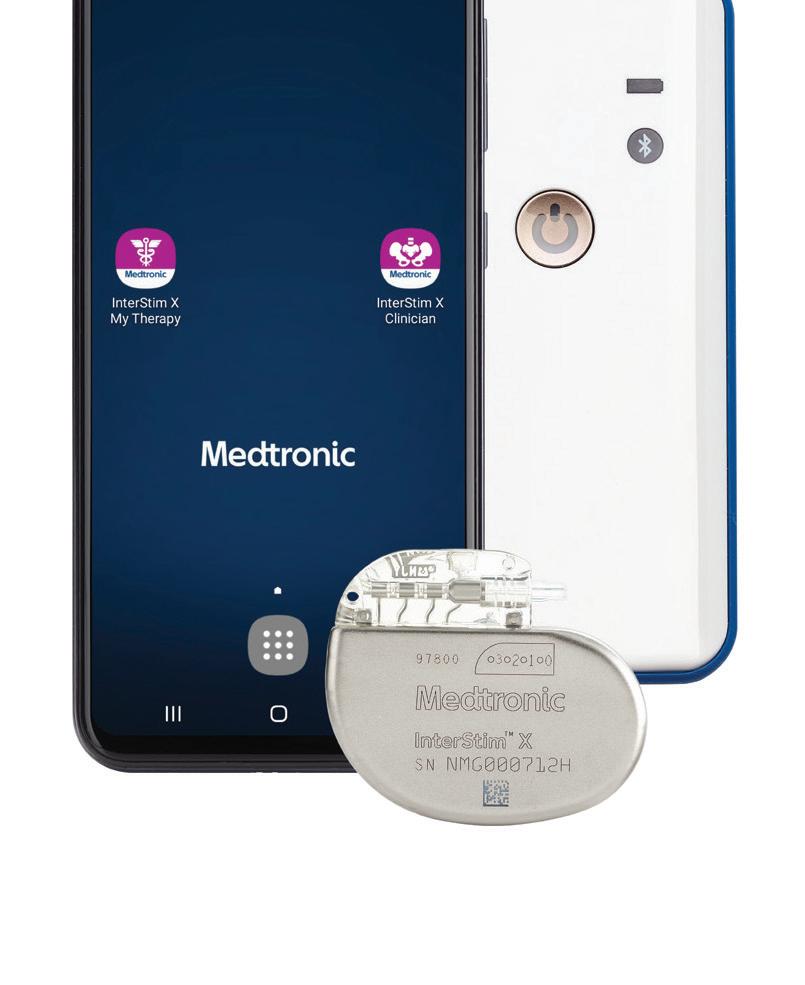

Last year, figures published by NHS England showed that a record number of people were referred for suspected bowel cancer. That is, in part, thanks to Dame Deborah James. Right up until her death, she campaigned tirelessly to raise vital awareness of bowel cancer. There is no doubt that lives have been saved — and will be saved in the future — thanks to the increase in awareness of the disease and its symptoms that she generated. We need to keep that momentum going. Know the symptoms of bowel cancer, tell your friends and family about them, and contact your GP if you’re worried. It really could save your life.
Project Manager: Matthew Stead matthew.stead@mediaplanet.com Business Development Manager: Emma-Jean Edwards Managing Director: Alex Williams Head of Ireland: Ross Bannatyne | Head of Print & Design: Thomas Kent Designer: Aimee Rayment Content Editor: Angelica Hackett O’Toole | Head of Digital Operations: Harvey O’Donnell Paid Media Manager: Jonni Asfaha Social & Web Editor: Henry Phillips Digital Assistant: Carolina Galbraith Duarte All images supplied by Gettyimages, unless otherwise specified
In my 20s, I was all about work and living my best life. I never really took in everything that was happening in my body. It took a long time for me to get help (for IBS).
While I was going through irritable bowel syndrome (IBS) symptoms, I knew I wasn’t feeling myself but didn’t know what it was. I was going on stage and skipping meals because I thought eating too soon before a show might be causing the pain, bloating and cramping. It was hard to deal with but life was busy.
Anxiety and symptoms of IBS
I tried every, single thing to work out what was causing the pain. I noticed a link between anxiety and IBS as I had suffered from anxiety for many years. Lately, it’s gotten better through therapy but it still took a long time before I was diagnosed.
I’d seek holistic help from a doctor in New York. They gave me essential oils and ways to deal with anxiety. I also tried cutting things out — gluten, meat — to see if that would help. Eventually, I found the courage to speak to family; but I was in my 20s, thinking: ‘It’s fine; I’m dealing with it; It’s been like this for years’ — and not taking any advice.
Seeking support from a GP and speaking up

Finally, I got to a point where after back-to-back tours, I was about to start as the Narrator in Joseph at The London Palladium and thought ‘I can’t do another show while feeling like this.’ I decided to see my GP. She recommended this probiotic supplement, Symprove, But I already tried various probiotics before, and they didn’t work.
After researching, I now never go a day without taking Symprove and haven’t experienced any IBS symptoms since. It has been life-changing, and I only recommend something when I know first-hand that it works.

My mum always taught me that if you have a platform, make sure you use it for the greater good. For mental health; gut health; whatever it may be, people should use their platform to talk about it. To help ease pain and cramping, speak to your GP. I can’t stress enough that people need to speak up. I want to encourage others to make sure they don’t suffer in silence.

94% FEEL THE DIFFERENCE AFTER 3 MONTHS

My mum always taught me that if you have a platform, make sure you use it for the greater good.INTERVIEW WITH Alexandra Burke Singer-Songwriter, IBS Ambassador
Bowel incontinence, also known as faecal incontinence, is an inability to control one’s bowel movements. However, effective solutions now exist.
According to Bladder & Bowel UK, approximately 14 million people in the UK suffer from a continence issue. Moreover, about 6.5 million have some form of bowel problem. Many studies focus on its prevalence in groups above 40. Studies also state that twice as many women are more likely to suffer from incontinence than men.
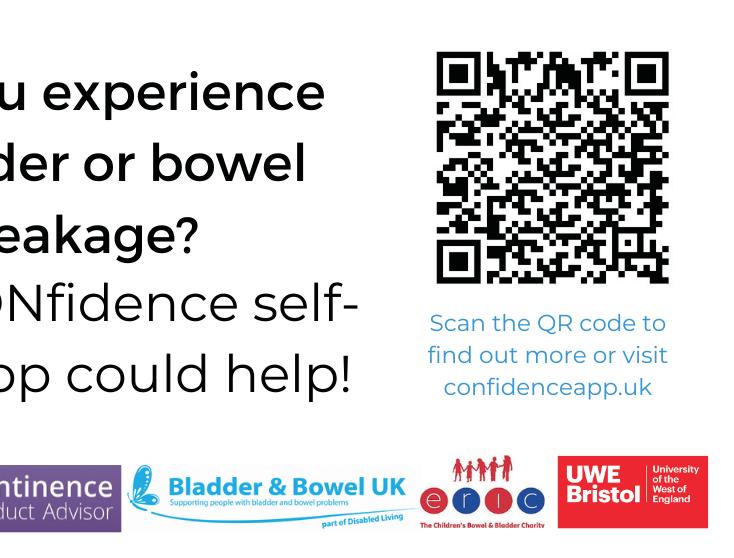
Issue of bowel incontinence in young people and men
However, I — a 56-year-old man — have been suffering from bowel incontinence since I was in my mid-20s. This is important to highlight as it seems to be a woman-focused issue. I’m living proof that this is not always the case.
Throughout early life, I was misdiagnosed with ‘diarrhoea predominant IBS,’ and I lived with this diagnosis for 25 years. I would have catastrophic episodes of incontinence. I went along, but no examinations were done by the GP. It only got worse and reached the point where I had to move close to work because it was impossible to catch the tube, for example.
Psychological impacts of bowel incontinence
Every time I lose control of my environment, the panic attacks would begin; the adrenaline would flow; gut motility would increase. I would have no control over my bowel functions. It’s life-altering, and people suffer from it for years because no one wants to talk about it.
When I was finally willing to talk about it, I felt liberated. It affects your social life; sexual life; mental health; every element of life. Even a two-minute trip to the shop had to be planned, and I would wear adult nappies. I always needed to find out what the toilet situation was.
There’s a huge mental impact. It’s not just about treating the mechanical, physical element. The panic attacks could be severe — as soon as I walk into a room, I was overcome with fear. That doesn’t disappear as soon as you put in the SNS (sacral nerve stimulator).
Journey of seeking help for incontinence: ups and downs
I have had two stimulator devices (also known as sacral nerve stimulation) fitted. Before that, I had seen several GPs and three good gastroenterologists, but they didn’t seem aware of the life-changing treatment available.
1A variety of therapies are available to treat incontinence. Quality of life can be restored with the right medical treatment
It was only when I went to St Marks (the National Bowel Hospital in London) that I got the help I needed. They did all the necessary tests. However, even with the wonderful care I had, there was no attention to looking after the psychological effects. People need this help.
In terms of having the SNS device, it was life-changing. I had the Interstim II fitted and had that for seven years. Unfortunately, it ran out of battery just as the pandemic hit. I was back to square one for nine months and had to go back to adult nappies. It was very emotionally distressing.
More advanced solution to bowel incontinence



When I finally had the operation, I opted for the latest rechargeable microdevice (InterStim Micro). It allowed me to get full-body MRI scans, and the battery lasts up to 15 years. Another advantage of my SNS device is that it can completely stop bowel urges. The previous one gave me more time. This second one gave me control.
This treatment gave me back my life. Bowel incontinence is both about the physical and psychological consequences. Finding the proper treatment for me is the only thing that stopped my 25 years of suffering.
Currently, there is a new recharge-free battery available. I’m pleased to know there are options I can choose from when it comes time for a battery replacement. More patients and healthcare providers should be aware of the multifaceted success of finding the right treatment.
If you've noticed changes to how you think and feel that concern you, talk to your GP about them.
In the first instance, they may recommend changes to what you eat and drink. Other lifestyle changes may be encouraged, these include: weight loss and stopping smoking. You may also be directed to other information sources e.g. the CONfidence app.
Your GP may refer you to a specialised team for further tests and treatment options. Continue to maintain a healthy lifestyle. Treatment options include:
There are other options available and you may be able to discuss these with your hospital.
• For Faecal incontinence: anal irrigation (washout), a colostomy
• For stress incontinence: slings made out of a surgical mesh that restore the normal anatomy of the bladder
• For overactive bladder symptoms: Botox injections every few months
If the conservative efforts above do not work for you, then you must return to your doctor to find an alternative treatment. This might include incontinence medicine.
• Supervised pelvic floor muscle-training / physiotherapy
• PTNS: Stimulation of a nerve in the lower leg
• Alternative incontinence medicine
• Sacral neuromodulation: pacemaker for bladder/bowel
Although women’s health has never been more in the spotlight, increasing waiting lists, maternity services under pressure and difficulty accessing specialists mean that women often turn to Dr Google for help. However, this is often unreliable.
The wealth of information available online can be confusing and doesn’t always direct women to the best treatments available. The Everywoman festival is a one-day women’s health event being held in Cardiff on Saturday 24th June 2023. It aims to empower and educate women on common conditions that can be difficult to talk about but that can affect 90% of women at some point in their life.
Continue to seek help from your doctor if you have still not found the right treatment for you.
WRITTEN BY Mrs Julie Cornish Consultant Colorectal Surgeon and Senior Lecturer Cardiff and Vale University Health Board, Founder of Everywoman Festival

Wide-ranging support for women at health festival
I decided to set up the festival as I keep seeing women in clinics who have suffered in silence with problems such as prolapse and incontinence that are related to their childbirth and menopause. What is most frustrating is that some of the problems could have been prevented or treated much more simply if people knew what was normal and where to seek help.
The festival combines more than 40 workshops and six themed seminar sessions in a fun relaxed environment with art workshops; creative markets; book readings from several authors; drop-in wellness stands; cookery demonstrations; food and drink; and live music. Themes are wide-ranging and include periods and endometriosis; pelvis pain and bladder; childbirth injury; menopause; and sexual wellbeing.
The Everywoman Festival will be held in the heart of Cardiff in the beautiful venue of Insole Court. It will feature a range of interactive workshops and talks from leading health experts. Attendees will have the opportunity to learn about everything from nutrition and fitness to mindfulness through art.
For those who are looking for something a little more active, there will be a variety of fitness classes and workshops taking place throughout the day. From seated yoga, pilates to belly dancing or sustainable period products to gut microbiome, there’s something for everyone — regardless of age and fitness level.






















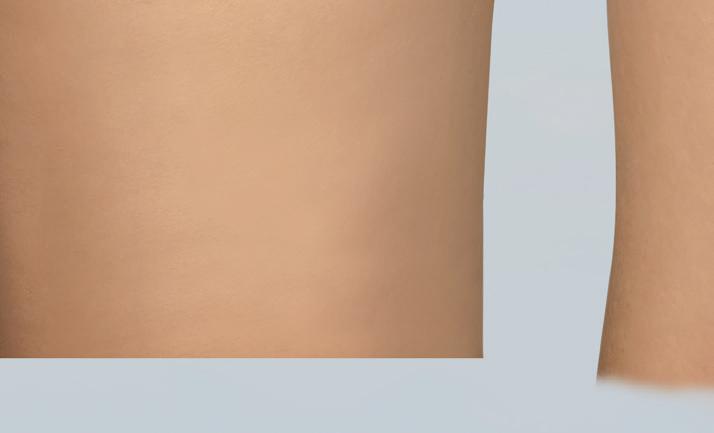
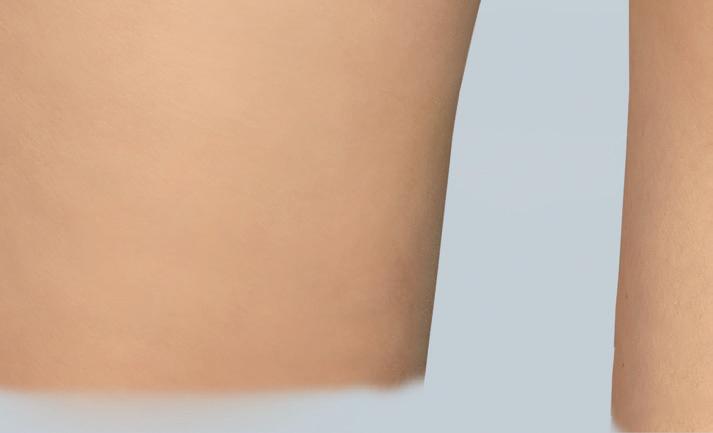






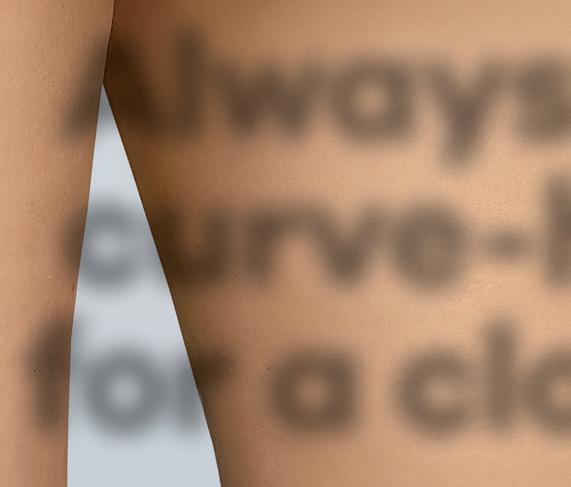
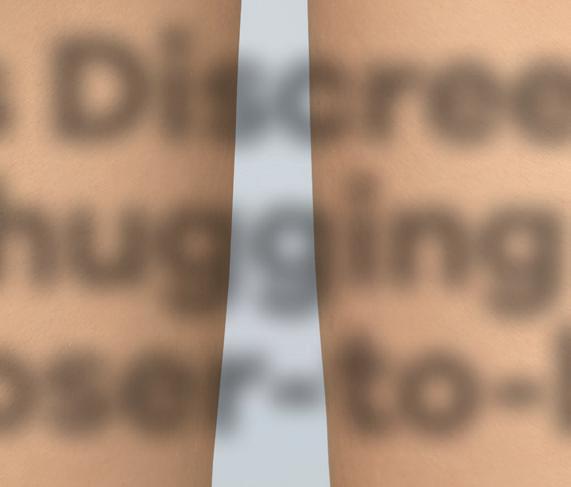
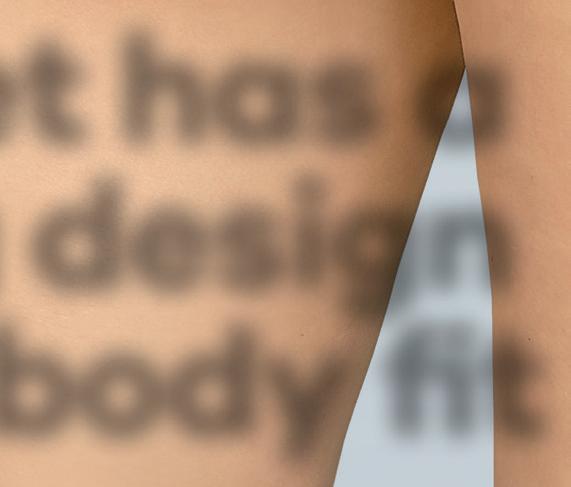















Ketamine is a popular recreational drug that has been used for decades. However, recent studies have shown that its abuse can lead to serious bladder problems.
Ketamine is a dissociative anaesthetic that has been used in medicine for many years. However, when taken in large quantities, it can cause a range of physical and mental health problems. One of the most concerning side effects is the development of ketamine bladder.
What is ketamine bladder, and why is it damaging?
Ketamine bladder is a condition that affects the bladder and urinary tract. It is characterised by symptoms such as frequent urination, painful urination and blood in the urine. In severe cases, ketamine bladder can lead to bladder dysfunction, chronic pain, kidney failure and even the need for bladder removal surgery.
The link between ketamine abuse and bladder damage
Recent research has shown that chronic abuse of ketamine can cause damage to the bladder and urinary tract. This is because ketamine can interfere with the normal function of the bladder lining, leading to inflammation, scarring
and other types of damage. This can spread to the ureters, affecting the passage of urine from the kidney to the bladder — causing a blockage.
Prevention and treatment of ketamine bladder
The best way to prevent ketamine bladder is to avoid using the drug altogether. However, for those who have already developed the condition, there are treatments available. These may include medications, lifestyle changes and even surgery, in severe cases. It is essential to seek medical attention if you are experiencing any symptoms of ketamine bladder.
Ketamine bladder is a serious and potentially life-altering condition that can result from the abuse of this popular recreational drug. It is essential to understand the risks associated with ketamine use and to take steps to prevent and treat ketamine bladder if necessary.
Injuries to the pelvic floor — often following childbirth — are seen as a ‘neglected health issue.’ With symptoms including urinary or bowel leakage, patients can be reluctant to seek help.
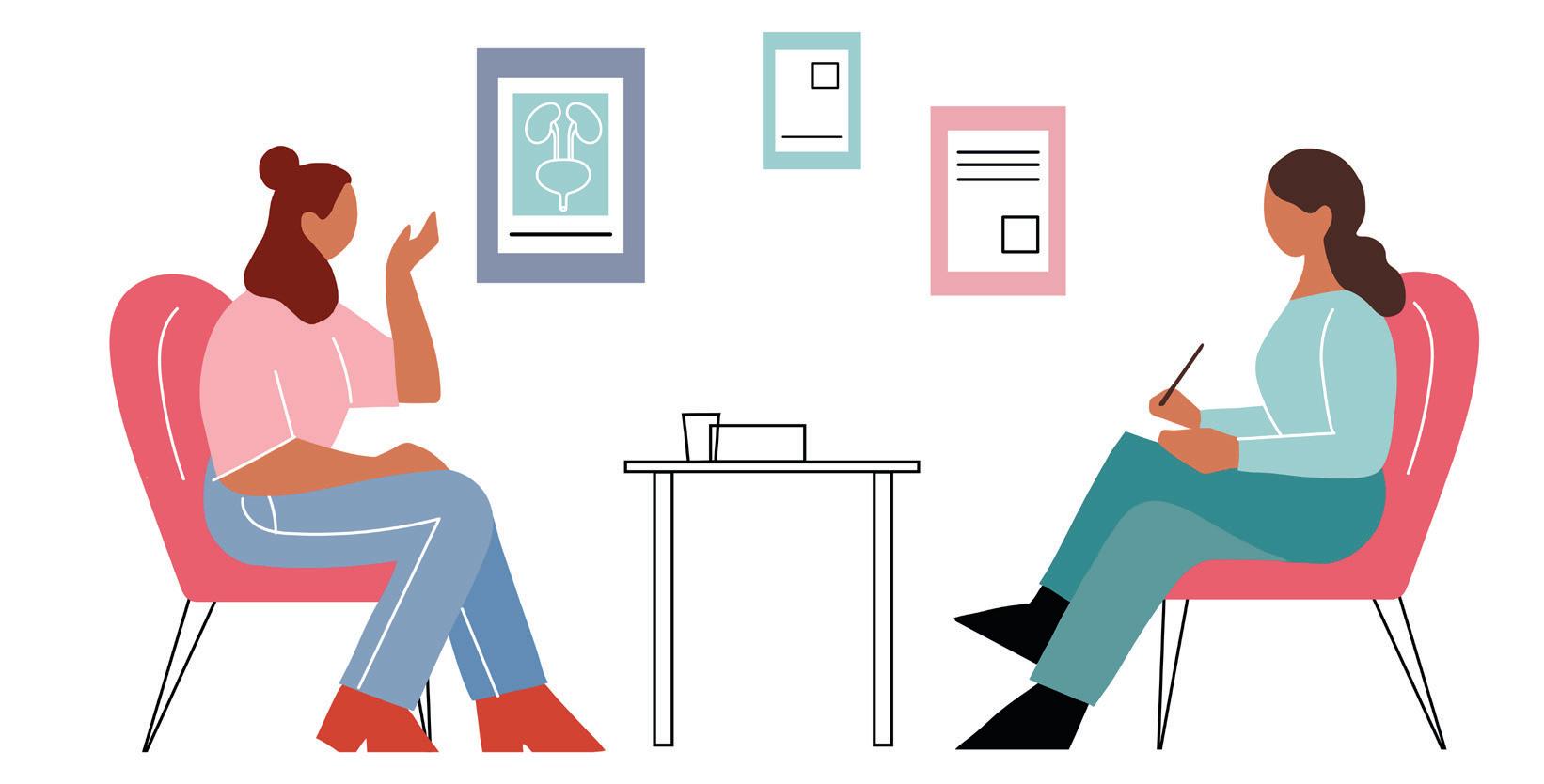
Childbirth-related pelvic floor injuries are common: in the first year after birth, 1 in 3 women will experience urinary leakage; 1 in 10 will suffer from accidental bowel leakage; and 1 in 12 will feel a prolapse or lump. Treatments, however, are often straightforward with physiotherapy or lifestyle changes.
Seeking help for pelvic floor injury
Alison Hainsworth, Colorectal Surgeon and Pelvic Floor Unit lead at Guys’ and St Thomas’ Hospital in London, explains that possible side effects of giving birth were rarely discussed in the past.

“Hopefully, that is less so now; but after delivery, there is still a lack
of understanding of what a normal recovery will be like,” she says. “People are embarrassed about symptoms, such as having leakage of faeces or urine, and a fear of talking about those issues means people do not seek help.” She stresses discussing symptoms with GPs and points to other health professionals that can help, including pelvic health physiotherapists and specialist continence nurses. “We want to identify women as early as possible because we know that can make a difference,” she says. “However, if women just try to manage their symptoms, they are missing out on help; and symptoms may either not get better or get worse.”
Pelvic floor disorders can also affect men as well as women who have not had children. “We want to empower
people to seek help as there is a lot that can be done.”

Ultrasound to determine treatment While damage can be noted during birth, a woman can undergo an endo-anal ultrasound scan 12 weeks after delivery if symptoms persist to assess potential damage to the anal sphincter muscles.

Endo-anal ultrasound, which involves placing an ultrasound probe into the anal canal, enables clinicians to decide on the best course of treatment in the event of an anal sphincter muscle injury. This usually involves pelvic floor exercises, dietary considerations, or medication.
“It’s very rare for our patients to need surgery — majority can be helped with conservative, non-surgical treatments,” emphasises Hainsworth. Ultrasound findings can also help healthcare professionals work with patients to make informed choices about future pregnancies and subsequent deliveries.


Perinatal network
Hainsworth also highlights the new perinatal pelvic health clinics, which will be established nationally from next March after being piloted at 14 sites. These are for women who are pregnant or experiencing pelvic dysfunction in the first year after pregnancy and aim to make care safer, more personalised and more equitable.

Pelvic floor injuries and other issues people need to seek help forINTERVIEW WITH Alison Hainsworth Colorectal, Pelvic Floor and EGS surgeon Guys’ and St Thomas’ Hospital
Dr Cat Anderson is a GP in North Staffordshire specialising in women’s health and UTIs (urinary tract infections). She outlines how traditional testing can miss UTIs and urges healthcare practitioners to listen closely to patients when they say they have a problem.

Urinary tract infections (UTIs) can be common in women. Bacteria within our own bodies can travel and accumulate which can lead to a lower urinary tract infection which primarily affects your bladder (cystitis), whereas an upper urinary tract infections can include infections within your urethra (urethritis) and/or kidneys (kidney infection).
What are the symptoms of UTIs?
Symptoms of an acute UTI can include discomfort when passing urine, frequency of wanting to pass urine, lower abdominal pain, feeling unwell and even urinary incontinence. Chronic UTI can have symptoms of constant pelvic discomfort while with recurrent UTI, the patient can experience an acute infection frequently.

What is classified as recurrent and chronic UTIs?
An acute UTI disappears after appropriate treatment, whereas a recurrent UTI has a medical diagnosis of two UTIs within six months or three within 12 months. More research is needed around chronic UTIs and we have set up a working party to gain a formal medical definition.
How common are UTIs?
Approximately 50% of women will get a UTI in their lifetime. One in four women who have a UTI will go on to have what is classed as a recurrent UTI and for an estimated 3% of women, this will turn into a very persistent chronic UTI.1
How are patients diagnosed?
symptoms, in those with no red flags and in which the cause of UTI can be determined; recognising dipstick and culture testing have their limitations. We know for example, a patient who has had a UTI in the past, will be very good at recognising the symptoms when they experience them again.
Why is it hard for patients to get the right diagnosis?
Whilst new testing criteria is investigated1, it is acknowledged by most microbiologists that up to 40% of symptomatic patients will not be diagnosed by the current testing criteria. This is due, in part, to culture testing, relying on limited legacy data. This data is not always reflective of the present day patient. Additionally, another contributing issue is that bacteria can also burrow within the bladder wall, which means it is less likely to be picked up on standard testing methods.2
A US study by Michels et al 2015, showed that when women presented with symptoms, there was an underlying urinary tract infection in 90% of patients. This is why we urge patients to keep a note of their symptoms so that they can communicate them clearly to their doctor.3
What is the solution?
If NICE and the NHS agreed, GPs could ‘flag up’ patients known to have problems to undergo more detailed culture testing. With the current process, many patients miss out on treatment. So, although there are some limitations in current diagnostic methods, patients should be urged to discuss their symptoms with their doctor.
A charity recognises the power of patient voice and the impact of a ‘lived experience.’ They offer an advice line where patients can speak to speak to someone openly about bladder illness.
Bladder Health UK (BHUK) is a national patient support charity that has been communicating with bladder illness sufferers for over 25 years. We offer a wide range of resources to help educate and inform on various conditions; and we pride ourselves on our advice line.
Encouraging patients to talk about bladder concerns
Callers are listened to with empathy and understanding by experienced people, with both expert patients and clinical staff available five days a week. Sometimes, it will be the first time the caller has shared that they have a bladder condition. There are also regular callers who want to unburden themselves when their symptoms get too much for them to manage on their own.
An anonymous patient says: “If it wasn’t for Bladder Health UK, goodness knows where I would be now. I will be forever grateful to their staff who spent time talking to me and explaining the help available.”
Another shares: “The helpline is priceless – advice is practical, realistic and evidencebased. I rang the helpline in desperation because I was having a UTI up to twice a month…”
Find out more at bladderhealthuk. org
Page sponsored and approved by Viatris HIP-2023-0099 / June 2023
NICE (National Institute for Health and Care Excellence) has recently simplified the guidance to help healthcare professionals identify a UTI. Whereas the advice previously relied on dipstick and/or culture testing, NICE have now suggested changing the approach, and relying more heavily on patient
References 1. Cochrane review - Antibiotics for preventing recurrent urinary tract infection in non pregnant women. Xavier Albert, Isabel Huertas, Inmaculado Pereiro, José Sanfélix, Victoria Gosalbes, Carla Perrotta,July 2004 https://doi.org/10.1002/14651858.CD001209.pub2
2. https://bsac.org.uk/utis-what-are-the- burning-issues/
3. Michels TC, Sands JE. Dysuria: Evaluation and Differential Diagnosis in Adults. Am Fam Physician. 2015 Nov 1;92(9):778-86. PMID: 26554471
Helping people who can’t be heard on their own Admitting to a bladder problem is hard, and even if you do see a GP, diagnosis can be complicated and disheartening.
Marketing and Communications Manager Susannah Fraser has suffered from bladder issues for 20 years. She is now a passionate advocate and valued team member of the charity because it helped her when no one else understood. “You cannot underestimate the relief I felt when I found this organisation that knew exactly what I was going through and that there were others like me,” she says.

The charity has a wonderful community of people passionate about making things better for those who know what it is like to live with a debilitating and often isolating illness. They have strong, supportive relationships with relevant corporate and commercial organisations and access to NHS and government bodies.
WRITTEN BY Susannah Comms and Media Manager, Bladder HealthBladder advice is only one call away
Fraser
UKINTERVIEW WITH Dr Cat Anderson Women’s Health GP & key opinion leader in recurrent/chronic UTI, North Staffordshire
I will be forever grateful to their sta who spent time talking to me and explaining the help available.Paid for by Viatris UK Healthcare Ltd Dr Anderson founded a private microbiology laboratory in 2020 in Newcastleunder-Lyme running specialised tests and supports other UK doctors in getting relief for their patients.

Healthcare professionals are encouraged to support patients’ self-care. This includes coaching patients with simple lifestyle changes to prevent bladder and bowel dysfunction.
In this modern world of new technology, there are so many fast-moving advances in healthcare that support patients, more than ever, to stay well for longer. However, it is equally important to remember that simple lifestyle advice can prevent bladder and bowel dysfunction.
Lifestyle changes to prevent bladder and bowel dysfunction
The benefits of hydration can support our general wellbeing. In particular, it helps prevent symptoms such as urinary tract infections and constipation. Optimal hydration is achieved with fluids that don’t act as a stimulant to the bladder.
Caffeine is a natural chemical with stimulant effects which can irritate the bladder causing overactivity. By reducing the sudden urge to pass urine, you can also reduce the risk of a fall which becomes a risk when rushing to the toilet.
How caffeine reduction can help with hydration
Reducing caffeine can improve sleep; reduce indigestion and headaches; improve hydration, which can reduce urine infections and constipation. It
Bladder cancer affects over 21,000 individuals every year and is the fifth most common cancer in the UK.
Despite these high numbers, only 1% of cancer research funding is devoted to bladder cancer. Awareness remains crucial to empower individuals in their fight against bladder cancer.
WRITTEN BY Lydia Makaroff Chief Executive, Fight Bladder Cancer
can also improve the effectiveness of antibiotics, other medications and our own ability to fully absorb essential vitamins. Switching to decaffeinated fluids is a great first step to achieving optimal hydration and preventing bothersome bladder and bowel symptoms.
Decaffeinated tea or coffee is where the caffeine has been removed from the coffee beans or tea leaves. The safest method of decaffeination is natural or water-based decaffeination. If you normally drink a lot of caffeinated tea or coffee, you might experience some withdrawal headaches in the first few days. The best way is to reduce slowly, reducing caffeine intake by half a cup a day over a 7–10 day period.
It’s important to remember: as wonderful as innovation is, we can all improve our general health by following these simple lifestyle changes. We must not underestimate that a small change can make a big difference.
Lifting the taboo around bladder cancer symptoms
In recent years, there has been a growing movement to lift the taboo surrounding bladder cancer as it often remains shrouded in silence and stigma. We, at Fight Bladder Cancer UK and our team of dedicated patient advocates, are working with the World Bladder Cancer Coalition to spark conversations that drive awareness around bladder cancer by focusing on one of bladder cancer’s most common symptoms — blood in urine.
Seeing bladder cancer symptoms
What you see might be different to what others see. There is an image we call the ‘Unsure Icon,’ and it has been specially designed to be seen in different ways — just like the symptoms of bladder cancer.
You may notice that it contains imagery of blood in urine, the shape of the human bladder, the passing of time, self-examination and being examined. By openly discussing the disease, sharing personal stories and raising awareness, we not only empower those living with bladder cancer but also break down barriers to education, early detection and support.
After battling bladder cancer last year, which could only be treated with life-changing surgery, Colin O’Sullivan was left with two stomas. He now wants to help make a difference for other patients and break the stigma behind topics perceived by many as embarrassing.
Colin has helped raise vital awareness and funds for bladder cancer. Colin’s passion for raising awareness for bladder cancer comes from his own “sheer lack of knowledge and the ignorance that comes from people’s reluctance to discuss subjects like ‘wee’ and ‘poo,’ when it’s something everyone does every day … My ignorance and naivety amaze me even now,” he admits.

Over half of people diagnosed with bladder cancer will succumb to the disease. However, recognising the early signs — such as blood in urine, frequent urination or pain during urination — can lead to an earlier diagnosis, which significantly improves outcomes.
Bladder cancer has a 90% survival rate if diagnosed early. Education and awareness campaigns play a pivotal role in fostering early detection and effective management of bladder cancer.
Optimal hydration is achieved with fluids that don’t act as a stimulant to the bladder.
Why people
Thousands of young adults in the UK may be dropping out of their studies, work and social lives because of bowel health problems.
Despite the severity of their symptoms, young people keep delaying seeing a GP. Some put it off because they are too embarrassed or scared to speak about their toilet habits. Others are worried they might waste the doctor’s time.
interventions available to them. Plus, the longer they wait to find out what’s wrong, the more likely they are to need emergency bowel surgery. All these factors place a huge burden not only on the individual but also on the NHS.
WRITTEN BY Burcu Borysik Head of Policy and Campaigns, Crohn’s and Collitis UK
A recent independent poll commissioned by the charity Crohn’s & Colitis UK found that nine in ten young adults between the ages of 18 and 35 said they would delay seeking medical help if they had recurrent stomach pain, diarrhoea or saw blood in their stools.
Approximately 70,000 people across the UK have completed the symptom checker since November.
Instead, many try to manage their symptoms through dietary and lifestyle changes. Some even turn to social media to get advice from other young people. Unfortunately, the internet is awash with unverified medical treatments, making it difficult for young people to distinguish between reliable medical advice and utter nonsense — some of it dangerous.

Quicker diagnosis with a symptom checker

Delays in diagnosis limit young people’s ability to work, study and socialise. They also limit the medical
At Crohn’s & Colitis UK, we aim to change that with our campaign — Cut the Crap: Check for Crohn’s and Colitis. We have developed a symptom checker, which does the talking for young adults. There is a letter they can take to their GP, complete with a list of the warning signs they’re experiencing.
Approximately 70,000 people across the UK have completed the symptom checker since November. Three quarters of those advised to see a GP by the symptom checker do so within a month. All this highlights the overwhelming need for quick, accessible and confidential advice.
In March this year, the Scottish Government got behind our campaign and invested time, money and effort in raising awareness of Crohn’s and Colitis. We now need governments across the four nations to follow suit, so that everyone — regardless of where they live — can get diagnosed, get treated and get their lives back.
BladderBoss is an 8-week science-backed digital program, designed to empower women to improve bladder health and reduce the impact of Overactive Bladder (OAB), for a healthier and happier life. Try 7 Days for Free!
Learn more at Cut the Crap (crohnsand colitis.org.uk)

Bedwetting affects between 5% and 10% of children at age seven and about 1% to 2% of adolescents. Yet, it remains largely hidden due to embarrassment and general misunderstanding about the causes.
Many affected families do not realise that bedwetting is a recognised medical condition from the age of five. Unfortunately, myths remain from previous generations when there was little scientific evidence.
While stress and psychological factors can affect bedwetting, they rarely cause it. Bedwetting does not happen because of naughtiness or laziness in the child or because of anything they or their family have done wrong.
Bedwetting in childhood may be due to the kidneys producing more urine during sleep than the bladder can hold. When this happens, there are not usually any bladder problems presenting during the day to warn you. However, some children will experience issues during the day, having to rush to the toilet more than the expected five to seven times a day or having bladder leakage. There can also be an associated underlying constipation.
When you are asleep, the brain will usually receive a signal from the bladder that it is full and needs emptying — at which point you would wake up and go to the toilet. However, when these issues are associated with an inability to wake during this signalling, wetting during sleep is the inevitable consequence. Unfortunately, for some children, the bladder is just not working as well as it should at storing urine.

It is widely recognised that the condition may cause embarrassment and distress to children and their families. Social opportunities may be restricted due to the difficulties of sleeping away from home. Approximately 30% of 1,006 parents, responding to a Bladder & Bowel UK survey undertaken for World Bedwetting Week in 2022, reported that their child had missed out on overnight trips away from home; and 36% were worried about going on holiday due to the bedwetting, with many opting to take their own waterproof mattress cover — and over half taking additional clothes.
Financial and sleep consequences of bedwetting
There are several potential associated costs to bedwetting. Over a third of parents in the survey expressed concern about the financial implications of having to purchase additional pyjamas, underwear and bedding.
There are also the associated expenses of additional detergents, water and electricity for the washing and difficulties of drying wet bedding in poor weather. Inevitably, those from lower-income families are disproportionately impacted.
A problem less well-recognised is the associated disturbed sleep. Over a third of parents in the Bladder & Bowel UK survey were worried about getting less sleep themselves due to their child’s bedwetting.
Research has established that children who wet the bed are unable to wake to the bladder signalling that it needs to empty — but their sleep is still disturbed by those bladder signals. This results in poorer-quality sleep than their peers. Some children experience difficulties in their daytime functioning as a result, impacting their behavior and and concentration. The good news is that these improve with successful treatment.
Find the right treatment for bedwetting

Treatment for bedwetting can mitigate many of the psychological, social and financial costs. Three-quarters of the families who participated in the Bladder & Bowel UK survey said that they would ask their GP for advice. They could also approach their child’s school nurse.

Healthcare professionals may offer initial advice and support, along with a referral to a local service for further treatment if required. There is also information available online. Children and parents do not have to suffer the consequences of bedwetting throughout an entire childhood. There are ways to treat it — with resources and professionals who can help.

Find information on bedwetting and the treatment options at bbuk.org.uk/ children-young-people/ resources-for-children/ See suggestions on how to speak to your healthcare professional at stopbedwetting.org
